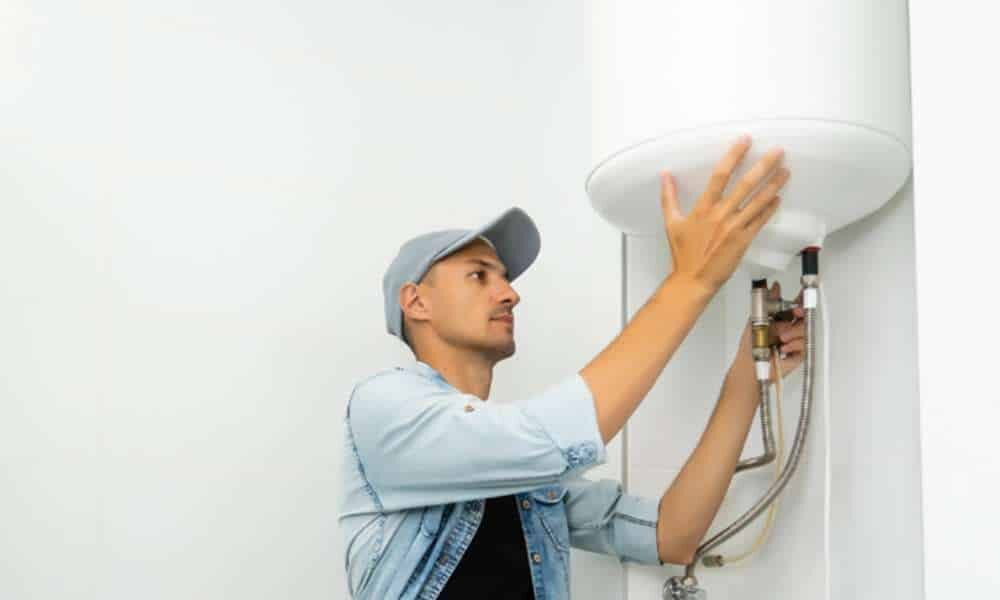Your water heater quietly serves as an essential appliance in your household, supplying hot water for various tasks such as showers, dishwashing, and laundry. Nevertheless, it’s crucial to acknowledge its role and maintenance. Taking this appliance for granted is easy until it malfunctions. To ensure that your water heater continues to serve you efficiently, it’s essential to understand both regular maintenance and the need for emergency response plumbers. This article will explore water heater maintenance, common issues, and when to call a certified or emergency response plumber. Expert water heater maintenance and repair services to ensure hot water reliability. Trust us for efficient solutions!
Regular Maintenance
Regular Maintenance Effective maintenance is the cornerstone of prolonging your water heater’s life and ensuring its consistent performance. Here are some essential tips:
- Flush the Tank: As time passes, sediment accumulation within your water heater’s tank can decrease efficiency. Performing an annual tank flush to eliminate this sediment buildup is advisable. If you’re unsure how to do this, consider hiring a certified plumber.
- Check for Leaks: Inspect your water heater for leaks, especially around the pressure relief and drain valves. The presence of leaks can signify a more significant problem, underscoring the importance of addressing them promptly.
- Test the TPR Valve: The temperature and pressure relief (TPR) valve ensures safety. Ensure its functionality by gently raising the lever and allowing it to reset into position. This should release some water into the drain tube. If it doesn’t, or the valve is damaged, it’s time to replace it.
- Insulate Your Water Heater: Adding insulation to your water heater can effectively minimize heat loss and contribute to energy savings. You can easily find insulation blankets on the market and install them without much difficulty.
- Keep the Area Clear: Maintain a clutter-free and fire-safe zone around your water heater. This practice reduces the chances of accidents and promotes the appliance’s optimal operation.
Water Heater Issues
Common Water Heater Issues Even with regular maintenance, water heaters can experience common issues. Here are a few to be aware of:
- No Hot Water: When your water heater fails to generate hot water, it might be attributed to a malfunctioning heating element, a malfunctioning thermostat, or an issue with the power supply. An experienced plumber with the proper certification can assess and address these issues.
- Leaking Tank: A leaking tank is a sign of internal corrosion and may necessitate the replacement of your water heater.
- Strange Noises: Popping, rumbling, or banging noises may result from sediment accumulation. Frequently, flushing the tank can resolve this problem.
- Fluctuating Temperature: Fluctuations in water temperature are frequently associated with a malfunctioning thermostat. A certified plumber can calibrate or replace it as needed.
Call a Certified Plumber

When to Call a Certified Plumber or Emergency Response Plumber In some situations, you’ll need the expertise of a certified plumber or even an emergency response plumber:
- Certified Plumber: For routine maintenance, annual inspections, and non-urgent repairs, a certified plumber is your go-to professional. With their expertise and experience, they can maintain your water heater in its best possible state.
- Emergency Response Plumber: If you encounter a sudden and severe problem, such as a burst tank, a significant leak, or a complete loss of hot water in the middle of winter, you may need an emergency response plumber. These experts are accessible around the clock to address emergencies, effectively averting additional damage and ensuring comfort.
- Anode Rod Inspection: Anode rods are sacrificial components that protect your water heater’s tank from corrosion. Over time, they can become depleted and require replacement. A certified plumber can inspect the anode rod during routine maintenance and advise you on when it should be replaced.
- Energy Efficiency Enhancements: If your current water heater is aging, it’s worth contemplating transitioning to a more energy-efficient model. A certified plumber can guide you in selecting the right type and size of water heater for your home, potentially saving you money on energy bills in the long run.
- Warranty Awareness: Familiarize yourself with the warranty terms of your water heater. Manufacturers often provide warranties that cover specific components or the entire unit for a set period. If your water heater encounters problems during the warranty period, you could qualify for repairs or a replacement. A certified plumber can help facilitate this process and ensure you get the most out of your warranty.
Conclusion
To ensure your water heater functions optimally and has a long lifespan, it is imperative to engage in maintenance and repair activities. Regular maintenance, knowing when to call a certified plumber, and understanding emergency response plumber services are critical for efficiently addressing water heater issues. Factors like anode rod inspection, energy-efficient upgrades, and warranty awareness can further enhance your water heater’s performance, ensuring your home’s consistent hot water supply.




